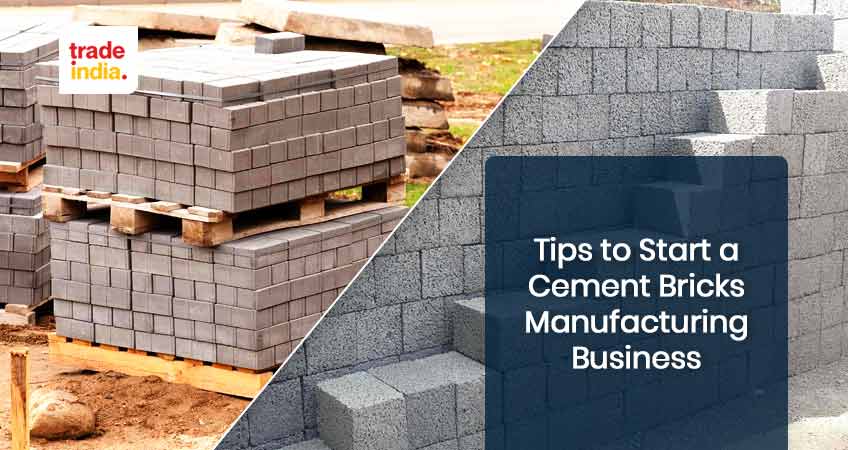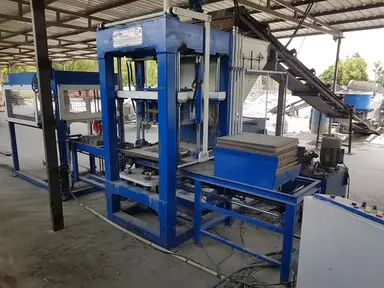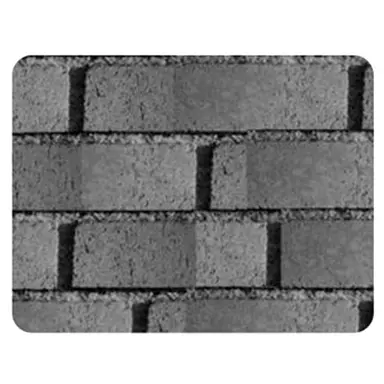How To Start A Cement Bricks Manufacturing Business in India - 2024 Guide

Cement and gravel are mixed in molds before curing the bricks. Concrete bricks imitating clay are made by adding mineral pigments.
It is less resistant to the corrosive effects of some acids when used as a replacement for a clay sewage pipe. There is a lot of overlap between the production of drain tile and roofing tile.
Hydraulic pressure is used to make cement bricks in molds, whereas clay bricks are extruded from a mold using a die.
During the curing process, water and cement react to form concrete bricks. These kilns contain high humidity and temperatures of about 150 degrees, which help speed up the drying process.
Types of Concrete Blocks
1. Solid Blocks:
Internal load-bearing walls and beam-and-block floor systems make extensive use of this material. The cavity or solid wall constructions are made with a solid block.
2. Hollow Concrete Blocks:
A valuable building material, hollow concrete blocks are lightweight and utilized for load-bearing on walls that are not load-bearing. Hollow concrete blocks are commonly 30cm x 20cm x 15cm (12in x 8in x 6in) in dimensions.
Market Overview of Cement Bricks
Cement bricks and blocks market outlook to 2024-rising focus on green architecture and tall building projects increasing desire for AAC blocks" gives a complete study of the brick industry in India (Clay Brick, Fly Ash Brick, and Concrete Block) and the AAC block market in India.
Clay bricks, fly ash, and concrete bricks and blocks all have a place in India's brick market, which is dominated by the material despite government efforts to reduce air pollution from red clay brick kilns leading to their closure and conversion to newer technologies.
How To Start Cement Bricks Manufacturing Business?
1. Create A Plan
An overview of your cement brick marketing plan is the first step. Cement bricks manufacturers may be a lucrative business if you have a solid plan in place. To write a business plan, you must first define the company's strategy. There should be different and precise strategies for advertising, financial, human resources, as well as operational aspects.
You must set out your business's goals and take the necessary actions to achieve them before the timing is right. You need to set goals for your firm and devise a strategy to achieve them. You're ready to go forward with your strategy now that it's in place.
2. Research and Due Diligence
Before putting any money into a new endeavor, the most important guideline is to conduct a thorough study and due diligence. Investing in something you don't understand is a waste of time.
Concrete brick manufacture is a highly steady company. There will be no fresh developments in this market in the foreseeable future. Cement bricks supported in the kiln are all that is needed. With thousands of rivals in the industry, the market and area have already been occupied.
There are a few easy things to ask yourself: What do you have to offer your clients that others do not? Is your cement brick any distinct from the majority of the blocks? Is your brick going to cost less?
In-depth market research will provide the answers to all of these issues. Bricks have set national pricing, and nearly all cement brick manufacturers offer bricks in the same price range as the national average.
Read More About: Fly Ash Bricks: Top 10 Manufacturers In India
3. Investment
If you're selecting whether to go with semi-automatic or completely automated equipment, you should take into account the prices. If you want to save money on the equipment, you might opt to buy used. The expenses of various equipment, raw materials, and so on should be examined.
An evaluation of the product you're aiming to generate is necessary. When you begin to run a factory-like operation in terms of labor, materials and power, water, and other expenses, be sure to account for these additional expenditures as well. You must offer an affordable cement brick price to assess the effectiveness of your cement brick company concept.
4. Set Up A Location
To be successful in the cement brick industry, you must first choose an appropriate location. Determine the size and amount of open space needed to run the business while looking at a site. It takes a lot of space for raw materials to be stored and for the furnace's heat to raise the temperature inside. As a result, you'll need a large, private location for the production of cement blocks.
5. Permit And License
To start and manage a brick manufacturing firm, you'll need a variety of licenses. You must first register as a manufacturing and construction company.
In brick manufacture, government inspectors inspect the plant, employees, and laborers; their identity numbers, accounting books, and other paperwork are also checked out.
You'll also require environmental approval because you'll be producing waste products, such as smoke, dust, and drainage, during production.
To start a kiln in your area, you'll need to get authorization from your local government and authorities. To build a kiln and make brick, you must follow a set of rules. Excavation for soil, dust control during production, smoke control, etc.
6. Raw Materials
You'll need the following things to get your cement brick-making business off the ground.
- Sand
- Cement
- Brick
- Added Chemicals
- Clay
- Water
7. Equipment and Machinery
Boots and gloves, as well as containers, are essential for the protection of your personnel. To mold the cement and clay, a mold will be necessary.
A kiln is used to fire such a cement brick size construction, either mechanically or manually. You'll also need fuels like coal, wood, and so on.
- Mortar mixer machine
- Molding structure for bricks
- Tools for mixing, leveling, and keeping such materials
- Kiln
- Cleaners and more
8. Personnel and Qualified Labor
Cement Brick-making is not a highly specialized field. Only the quality of the clay and mortar and the quantity of clay-water, cement-sand, and water, and the time and temperature required to bake the bricks, must be taken into consideration.
It's not difficult to understand for everyone. Engage the services of a brick-industry veteran with extensive knowledge and experience. The remainder will need a lot of hard work.
There are at least three personnel needed to get your manufacturing operation up and running, and that number might rise to 12-15 depending on your needs.
9. Marketing and the Dynamics of Business
The mechanics of cement brick production are quite complicated. In reality, it's a lot more complicated than most people realize. You won't be able to do anything in this industry unless you have a strong network and a large target audience.
People who are working in this industry tend to have links to the construction industry either directly or via their family or acquaintances.
In most cases, bricks aren't sold directly to the consumer. If they need cement bricks, they're not coming to your office to beg for them. Generally, you tell your contractor what you're building, and he'll order the bricks you need from a supplier he knows.
Construction-related supplies including sand, cement, dirt, equipment, trolleys, and bricks are often supplied by a group of these individuals. Consequently, you're going after contractors rather than customers.
10. Competition Research
Competition in the cement brick sector is limited to local and regional markets. This is why you need to do your homework and find out what your competitors are doing. Building a strong network is essential to success in the marketplace. Build a new network of contacts in the building trades.
As a result, you'll be able to grow your cement brick business while still receiving regular shipments. Make contact with local building businesses, builders, architects, and other professionals. Keep in touch with them and build strong bonds with them. Make sure your customers are satisfied with your offerings.
11. Earn High From Cement Brick Manufacturing
In recent years, the cement brick business has been producing positive outcomes. For many job searchers, the production of cement bricks is a profitable prospect. Many people are skeptical about the viability of starting cement bricks near me and the cement production business.
The prices of setting up a cement block plant or mill in India are the most important considerations to bear in mind.
With all of these pieces in mind, you're ready to make lakhs, just like a brick and cement small businessman. Nonetheless, realize that you must engage in some form of advertising or promotion. Quality is king when it comes to cement brick marketing.
Don't compromise on quality at any cost. It's a matter of life and death if your cement and bricks don't hold up to the weight of a brick-and-cement structure. You're well-versed in the implications of this.
| Top Cement Brick Machine Price List | Expected Price |
|---|---|
| Laying Type Cement Bricks Making Machine | 3500000.0 |
| Lew06 Cement Brick Making Machine | 240000.0 |
| Cement Brick Machine | 28.0 |
| Automatic Cement Brick Making Machine | 28.0 |
| Semi Automatic Brick Making Machine | 450000.0 |
| Semi Automatic Brick Making Machine | 450000.0 |
| Cement Brick Making Machine | 55000.0 |
| Cement Brick Making Machine | 55000.0 |
| 1850 X 1475 X 1750 Mm 45 Kilogram Hydraulic Pressure Cement Brick Machine | 300000.0 |
| 1850 X 1475 X 1750 Mm 45 Kilogram Hydraulic Pressure Cement Brick Machine | 300000.0 |
FAQs: Cement Bricks
Q. Is it profitable to make cement bricks?
Ans. These brick-making machines are available in a variety of sizes and capacities. Bricks may be made at a rate of 1,000 to 10,000 per hour on a standard machine. This equipment costs anywhere between 10-13 lakh. Bricks can be sold for between 30-40 lakh and 5 lakh bricks. After deducting all costs, you should expect to make a profit of roughly 4.90 lakh. So, cement bricks are a wealthy industry.
Q. Is cement brick manufacturing a profitable business for me?
Ans. Large brick producers produce 30,000-40,000 bricks a day, which may be sold for as little as 1-2 pence apiece thanks to their easy pricing. If your cement bricks business is a success, you may expect to make about as much money as you put out in bricks.
Q. What should I do to start the brick manufacturing process?
Ans. The four processes are mixing, molding, curing, and cubing.
Explore More:


